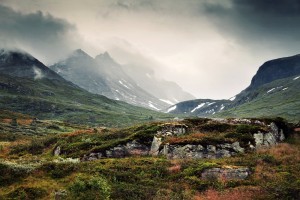
On Radically Loving the World
Let me ask what might seem a very naïve question: Why are we so willing to trash the world we live in? Or to be a little less naïve, Why do we allow those who govern our world to destroy, pollute, and enslave the earth and all that lives?
In wars and occupations, we destroy and cripple people, their communities, and the means by which they live. Industrial production turns the earth into a stockpile of resources to be exploited and a dumping ground for garbage and toxic waste. The peoples of the earth become a labor force to be worked generating riches for the wealthy few, subjugated by oligarchs, and locked up in prisons, refugee camps and behind national frontiers. Wonderful stuff built by the hands and creative minds of millions of people is reduced to ashes and rubble by bombs and artillery. Human beings who are capable of joining together to do marvelous things are trapped in degrading circumstances of poverty where simply surviving requires all the energy and creativity they can muster. So it appears that the rulers of our world, and those of us who could conceivably challenge them if we got our act together, have an attitude of contempt or indifference towards the planet and its people.
But there is nothing natural or inevitable about this unfeeling attitude towards the world. In a A Child’s Garden of Verses, Robert Louis Stevenson writes, “The world is so full of a number of things / I’m sure we should all be as happy as kings.” Leave aside the fact that kings are not likely to be very happy. The poem says, just look around, and you’ll see that the world offers us all we could desire.
The English poet Shelley wrote in 1815,
LIFE and the world, or whatever we call that which we are and feel, is an astonishing thing. The mist of familiarity obscures from us the wonder of our being. …but [life] is itself the great miracle. What are changes of empires, the wreck of dynasties,… what is the birth and the extinction of religious and of political systems, to life? …What is the universe of stars, and suns, of which this inhabited earth is one … compared with life?
Philosophers have asked, “Why is there anything rather than nothing?” And given that not only is there something, but this amazing universe, how is that there is also consciousness of it all? Forget the fact that we have no answers to these questions: the questions themselves arise out of an overwhelming amazement at our good fortune at existing at all. A song by Amy Ray of the Indigo Girls goes like this:
This world falls on me with dreams of immortality.
Everywhere I turn all the beauty just keeps shaking me.
Now I’m running, to the end of the earth –
And I’m swimming to the edge of the sea –
And I’m laughing under starry sky
This world was meant for me.
Don't bury me, carry me.[1]
Some people might say this a mystical state of mind that we should outgrow as we become mature and realistic adults? No. Love for the world is a natural and entirely understandable feeling about the world and about life – and about each other. All life desires life, desires to continue living and to make more life. Living things want not just to survive, but to flourish. Life is exuberant. And no life flourishes in isolation: living fully depends on the ongoing life of all that lives, of the human community within the community of nature. We flourish or we decay together. So why wouldn’t we, the more we are conscious of ourselves and our situation, love the world, and love it ecstatically, and direct ourselves wholeheartedly to its blossoming? Something that art (music, poetry, film, painting) does for us is to show us the world, including our own feelings, in a form that calls forth that love within us.
Of course there are all kinds of reasons why we destroy the world and each other. When our species was younger and more vulnerable, nature was full of forces that could destroy us. It seemed necessary to compete with other animals and other humans for scarce resources. And of course we also compete for honor and attention and political power. But perhaps the most general modern reason that the world feels flat and lack-luster is that we live in a social order that makes everything a commodity, something that can and must be seized upon to make money, and this includes not only the resources of the earth but the energy of other human beings that can be put to work and exploited by those who control capital.
Nevertheless, recognizing these obstacles, it is still open to us, even incumbent upon us, to learn to see the world in such a way that we can fall in love with it. Jessica Benjamin has written that as infants, we all go through an “elated, euphoric phase of discovery in which [we are] delighted with the world and [ourselves], discovering [our] own agency as well as the fascinating outside.” We need to use the artistic and intellectual resources we have as adults to making the world, even in its most everyday moments, into one we can fall in love with once again.
“I see trees of green, red roses too…”[2]
Clayton Morgareidge


